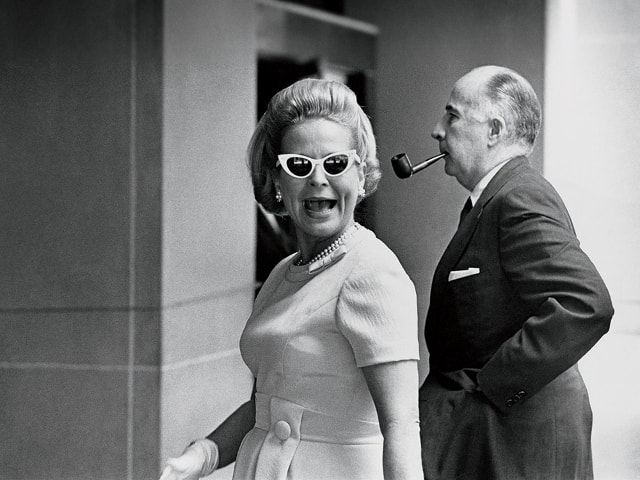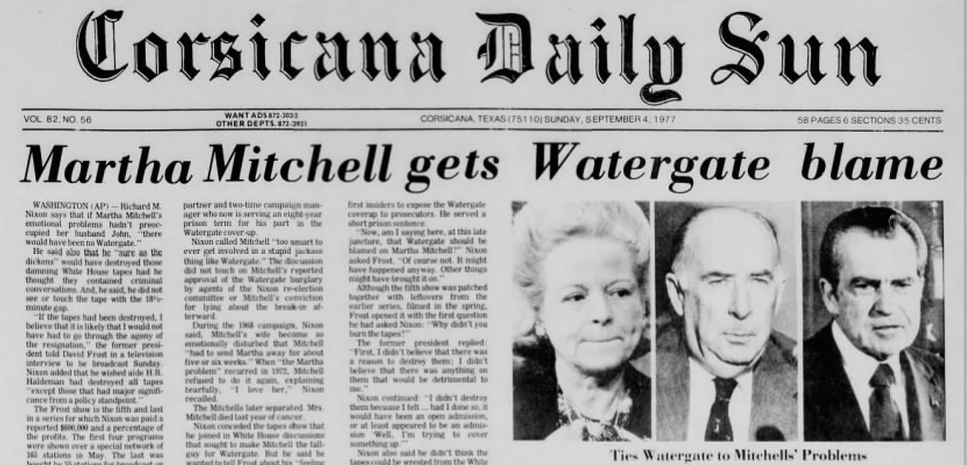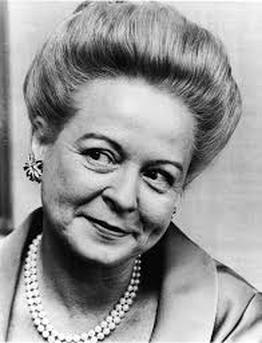 In the Nixon Era, Republicans discounted Martha Mitchell's accusations, saying she was mentally unstable. Her attacker got promoted and President Trump recently promoted him again. In voting to confirm Judge Brett M. Kavanaugh to the Supreme Court, the swing voters said the same thing about Christine Blasey Ford. They just used more subtle phrasing. They implied she had been so traumatized she couldn't tell what was real and what was not. Nothing has changed but the excuses people use to justify discounting women's stories, and the science that would support them. Richard Huganir, a neuroscientist at Johns Hopkins School of Medicine says trauma would only help a woman remember an attack more clearly. “The person lying on top of you — who she’d previously met — you’re not going to forget that,” he told the Washington Post. “There’s a total consensus in the field of memory ... If anything, fear and trauma enhances the encoding of the memory at a molecular level." It's the reason people never forget details of where they were on 9/11, or the day President John F. Kennedy was shot. Martha and John Mitchell came to the white house from Arkansas in President Richard Nixon's first term, he as attorney general. She publicly and loudly supported the president for a second term as her husband took over the president's re-election campaign. 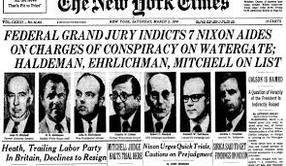 But then Martha began to suspect Nixon's men were up to "dirty tricks." She listened in on her husband's meetings with Nixon, and concluded members of the campaign were acting illegally. Martha had always spoken her mind; the press had dubbed her "mouth from the south." She complained about the label, which wasn’t applied to men in Washington. “Why do they always call me outspoken? Can’t they just say I’m frank?” She asked. The name calling got worse. The night arrests in the Watergate break-in hit the news, Martha called reporter Helen Thomas of United Press International to say she thought her husband and the president were somehow involved. The phone call was suddenly cut short. According to Thomas, “…it appeared someone took away the phone from her hand." She heard Martha say, ‘You just get away.’” Thomas said she called back and the hotel operator told her, “Mrs. Mitchell is indisposed and cannot talk.” 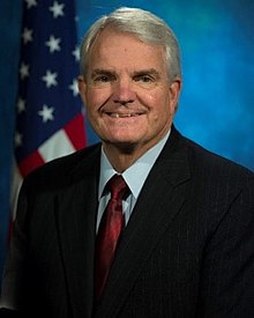 Martha later charged an FBI agent named Stephen King ripped the phone from her hands and subsequently threw her down and kicked her to keep her from making any phone calls. She says under orders from her husband she was locked in her room incommunicado for 24-hours. She was given alcohol, but no food. This seems like a good point in the story to introduce Stephen King (shown at left). After Nixon was re-elected in 1972, King left the FBI for private industry. Then last year, he was appointed Ambassador to the Czech Republic by Donald Trump. During his confirmation hearings, no questions came up about allegations he helped in the Watergate cover-up, or that he assaulted a woman to that end. Martha Mitchell claimed King held her prisoner despite a number of escape attempts. When she tried to exit through a glass door they got into a tussle that broke the glass and her hand was cut so badly she required six stitches. Martha said a doctor was finally summoned to aide King in keeping her a prisoner. King forced Martha onto the bed and held her down while the doctor removed her pants and gave her a shot of tranquilizer. A reporter who spoke with Martha after she was released described her as “a beaten woman,” with “incredible" black and blue marks on her arms. As Nixon fought for his office and reputation, his administration briefed the press about the Martha's lack of credibility. She was portrayed as a paranoid, publicity-seeking and, possibly alcoholic, housewife. Rumors spread that she had been institutionalized for insanity. 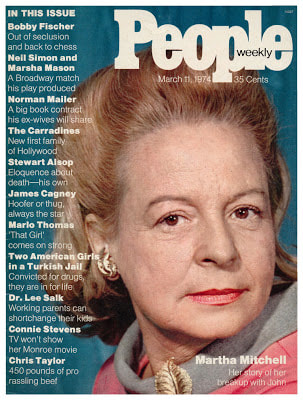 Martha wanted Nixon to fire Steve King, but the agent was promoted to chief of security. After leaving the FBI he went on to a lucrative career in chemical manufacturing. Arriving in Prague, last December, to take up duties as Trump's Ambassador to the Czech Republic, King told Radio Free Europe reporters, "I was there when this matter occurred [with Martha Mitchell]....But I have chosen -- then and now -- not to really speak to it specifically only out of respect to the Mitchell family, those that survive today." Nixon himself said, “If it hadn’t been for Martha Mitchell, there’d have been no Watergate [scandal].” Scandal, he means. But by the time he resigned in August of 1974, Martha's marriage had crumbled, she appeared to have possibly had an emotional breakdown and had suffered embarrassing publicity. So far, the only justice for Martha has been in the form of recognition by the mental health community. Harvard psychologist Brendan Maher encountered mental patients incorrectly diagnosed as being delusional, when it turned out their "delusions" were true. He named this the Martha Mitchell Effect. The effect is not a mental problem of the patient, but a mental block on the part of the psychiatrist. Seems like today we have a mental block on the part of half the senators in Washington. Thanks to YA Author Jody Casella for telling me about Martha Mitchell. Another courageous woman whose story I had not known. Comments are closed.
|
I'm fascinated to discover little-known history, stories of people and events that provide a new perspective on why and how things happened, new voices that haven't been heard, insight into how the past brought us here today, and how it might guide us to a better future.
I also post here about my books and feature other authors and their books on compelling and important historical topics. Occasionally, I share what makes me happy, pictures of my garden, recipes I've made, events I've attended, people I've met. I'm always happy to hear from readers in the blog comments, by email or social media. Archives
September 2023
Categories
All
|
